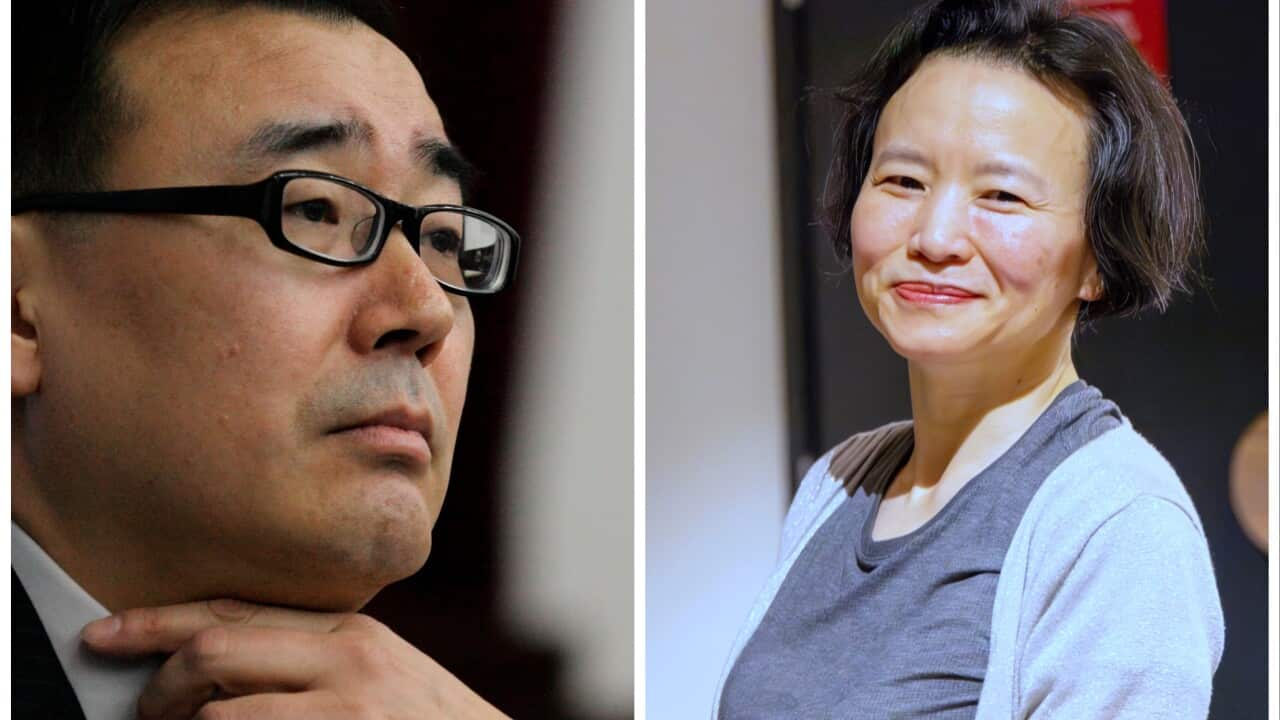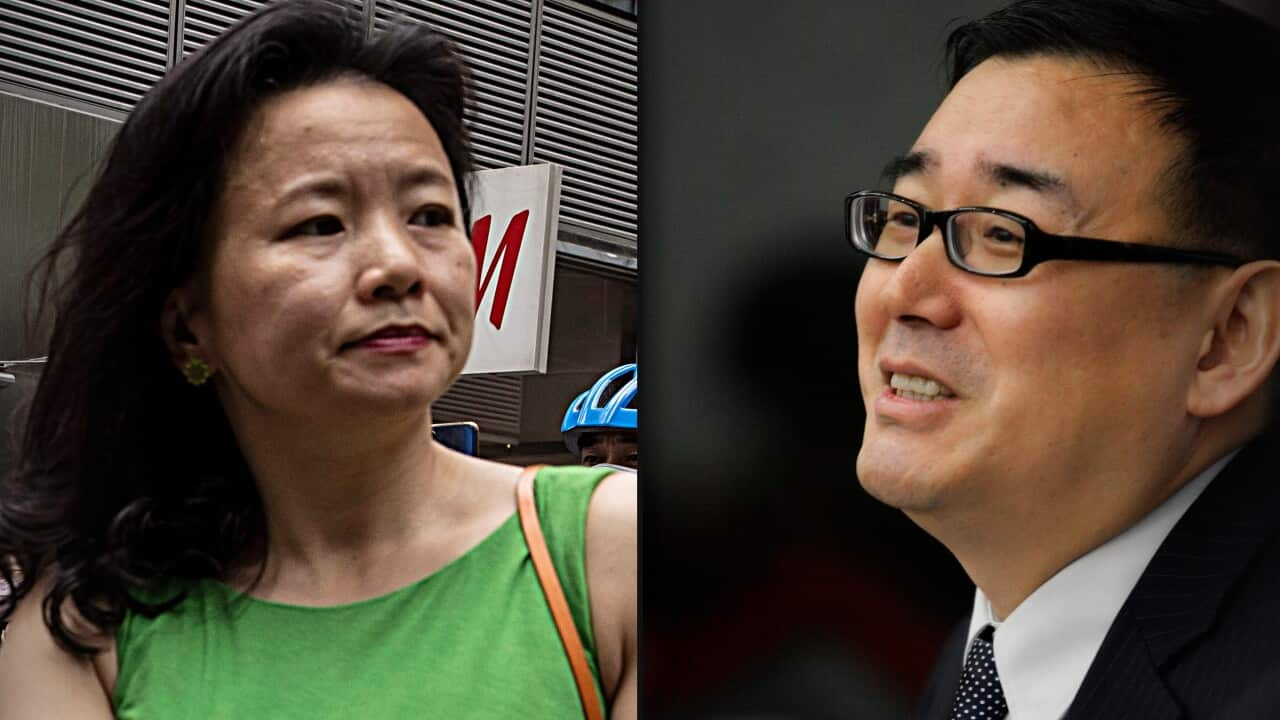Key Points
- After more than three years in Chinese detention, Australian journalist Cheng Lei has returned to Melbourne.
- Another Chinese-born Australian, Yang Hengjun, has been detained in China since January 2019.
- His supporters say that Cheng's release shows a path forward for securing Yang's freedom.
A supporter of detained Australian Yang Hengjun is calling for "greater pressure" on Chinese authorities to secure his freedom, saying his release would be "logical" after
Yang, a Chinese-born author and blogger, has been detained in China since January 2019.
He was charged in 2021 with endangering national security by joining or accepting a mission from an unidentified espionage organisation, which carries a sentence ranging from three years in prison to death.
Yang, who is a pro-democracy activist, has denied working as a spy for Australia or the United States. Before being detained, he posted comments critical of China's government on social media.
Feng Chongyi, a China studies professor at the University of Technology Sydney and a friend of Yang, said Cheng's release produced "mixed feelings".
"On one hand, I'm very happy that Cheng Lei has been released and is able to reunite with her family in Melbourne," he told SBS News.
"On the other hand, Yang Hengjun is still held by the Chinese authorities."
Cheng Lei's release
After spending more than three years detained in China, Cheng and been reunited with her family.
She was while working as a news anchor for the Chinese government's English-language channel CGTN, and later charged with "illegally supplying state secrets overseas".
Prime Minister Anthony Albanese announced Cheng had returned to Australia on Wednesday afternoon and had met with Foreign Minister Penny Wong in Melbourne.

Foreign Minister Penny Wong met Cheng Lei at Tullamarine Airport, Melbourne, after her release from Chinese prison. Credit: Sarah Hodges
"I made them a promise some time ago: I would do everything I could to bring her home, and it was wonderful to see them together.
"Very moving, and I wish her and her family well."
'Thank you Aussies'
"Tight hugs, teary screams, holding my kids in the spring sunshine," Cheng said via an X (formerly Twitter) account on Wednesday evening.
"Trees shimmy from the breeze. I can see the entirety of the sky now! Thank you Aussies."
Cheng was detained under China's powerful security laws, which allow authorities to keep a person secretly in detention for six months without charge.
Australian officials’ contact with Cheng was limited in recent years, and her case sparked outcry from multiple human rights groups.
Her detention was a key friction point between Canberra and Beijing, though relations between the two countries have improved over the past year.
Albanese confirmed her case had been "the subject of ongoing discussions" between China and Australia.
"Her matter was concluded through the legal processes in China," he said.
"This is something that we have advocated for a long period of time … I pay tribute to all who have made representations, both on the political level, whenever we have met with our Chinese counterparts."
Following Cheng's release, China for the first time released details of the charges against her.
Cheng was sentenced to two years and 11 months imprisonment for "illegally providing state secrets to an overseas party," Beijing's foreign ministry spokesman Wang Wenbin said.
She was then deported after serving her sentence "in accordance with the law".
China's state security ministry said the journalist voluntarily pleaded guilty "and accepted the punishment".
Albanese said he had two "good, constructive" meetings with Chinese President Xi Jinping and Premier Li Qiang prior to her release.
China stood ready "to work with Australia to continue to improve and grow the bilateral relationship and bring more benefits to the two peoples", Wang said.
Yang Hengjun in 'very poor health'
Yang has been detained since January 2019 and continues to await a verdict in his case with his judgement deferred.
Speaking after Cheng's release, Feng said his friend was in "very poor health" in detention.
In August, it was revealed . Feng said his friend was "very angry and upset", claiming Chinese authorities had "hidden" this information from him before it became serious.
Following Cheng's return, he said he is hopeful Yang will also be released "because this is logical".

An undated photo released by Chongyi Feng shows Yang Hengjun and his wife Yuan Xiaoliang. Source: Supplied
"But at least one thing that we all know, is that the law in China is a political tool.
"The release of Cheng Lei tells how well they can use the case as a political tool ... in order to amend or improve trade relations with the Australian government."
Government 'continues to advocate for Yang's interests'
Albanese said the government continues to advocate for Yang's interests.
"We manage each of these cases as separate consular matters. And so we continue to advocate for Dr Yang's interests, rights and wellbeing with Chinese authorities at all levels, whether that be in Canberra or in Beijing," he said on Wednesday.
"We've done so consistently since Dr Yang was detained in January 2019 and will continue to do so [as] previously suggested."
Speaking to the ABC, Home Affairs Minister Clare O'Neil said the government was still focused on returning other Australians who remained incarcerated in China.
Opposition foreign affairs spokesperson Simon Birmingham said the coalition remained "deeply concerned" for Yang and urged the government to use all available diplomatic channels to ensure his return and wellbeing.
Albanese is expected to travel to China before the end of the year.
Feng suggested he would like to see Yang's release used as a "condition" for the Prime Minister's visit.
"We already saw that the Chinese government is in a position, is capable to do that.
"I think the Australian government, the public as well as the international community should exercise greater pressure on the Chinese government to do the right thing."
The Department of Foreign Affairs and Trade has been contacted for comment.
With additional reporting by AAP.










